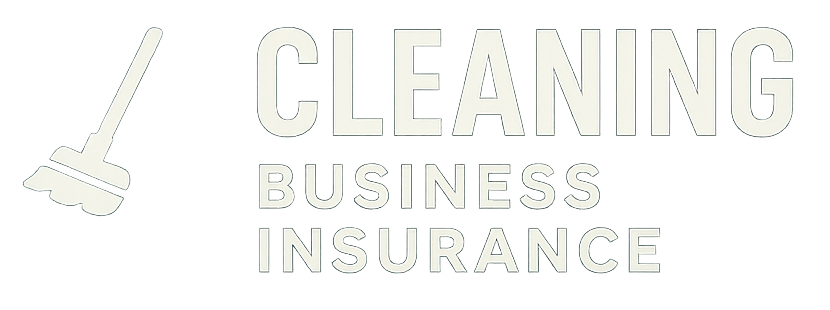When running a cleaning business in California, one of the biggest questions that comes up is whether or not workers’ compensation insurance is required. With cleaning work involving everything from heavy lifting to chemical handling and ladder use, the risks of accidents are higher than many business owners might think. California law is very clear about workers’ comp requirements, and not having proper coverage can put your business at risk of penalties, lawsuits, and financial strain.
This article explores California’s workers’ comp laws, why cleaners specifically need coverage, the benefits for both employers and employees, and what happens if you operate without it.
Understanding California Workers’ Compensation Law
In California, workers’ compensation insurance is a state-mandated requirement for nearly every business with employees. This law applies to small, medium, and large companies alike. Even if you only employ one cleaner, you are legally required to carry workers’ compensation coverage. Unlike some other states that make exceptions for very small businesses, California takes a strict stance—there are no exemptions for part-time or seasonal employees.
The law is designed to protect workers by ensuring they receive medical care, rehabilitation, and wage replacement if they suffer a work-related injury or illness. For employers, it serves as a safeguard against lawsuits, since employees who are covered by workers’ comp generally cannot sue their employer for workplace injuries.
Why Cleaning Businesses Face Higher Risks
Cleaning businesses operate in environments full of potential hazards. Office cleaners often move heavy furniture, mop slippery floors, and handle electrical equipment around cords. Residential cleaners are frequently exposed to chemicals and tight spaces. Window cleaners work at heights, which comes with a significant risk of falls.
Because of these risks, cleaning professionals are more likely to experience workplace accidents than workers in many other industries. This makes workers’ comp not only a legal requirement but also a practical necessity. Without coverage, a single accident could cost a business thousands of dollars in medical bills and lost wages.
Do Self-Employed Cleaners Need Workers’ Comp?
Many independent cleaners in California wonder if they need workers’ compensation insurance. If you are a sole proprietor with no employees, the law does not require you to carry workers’ comp. However, some clients—especially commercial property managers and larger organizations—may ask for proof of coverage as part of their contract. In such cases, even self-employed cleaners may benefit from having a policy in place to secure more lucrative jobs.
If you hire subcontractors, you also need to be careful. The state often views subcontractors as employees unless they meet specific independent contractor requirements. If they don’t qualify as independent contractors under California law, you are legally responsible for providing them with workers’ comp coverage.
What Workers’ Comp Covers for Cleaning Businesses
Workers’ compensation provides several important benefits when an employee is injured on the job:
Medical expenses: Covers doctor visits, hospital bills, medications, and rehabilitation.
Wage replacement: Provides a portion of lost income while the worker recovers.
Permanent disability benefits: Offers compensation if an injury leaves the worker unable to return to their previous role.
Death benefits: Helps support dependents if a workplace accident results in loss of life.
These protections not only help employees recover but also give business owners peace of mind, knowing that they are financially shielded from direct responsibility.
Penalties for Not Carrying Workers’ Comp in California
Failing to comply with workers’ compensation requirements in California can lead to severe consequences. Businesses found without coverage can face:
Hefty fines imposed by the state.
Criminal charges leading to misdemeanor penalties or even jail time in extreme cases.
Stop orders, which legally prohibit your business from operating until coverage is in place.
Civil lawsuits filed by injured employees, which can be devastating financially.
The cost of non-compliance far outweighs the price of a workers’ compensation policy, making it an essential investment for any cleaning company.
Benefits of Workers’ Comp for Employers
While workers’ comp is often viewed as a legal burden, it can actually be a valuable asset for business owners. Beyond avoiding penalties, it builds trust with employees and clients. Employees feel more secure knowing their well-being is prioritized, which can improve morale and reduce turnover. Clients also see insured cleaning businesses as more professional and reliable, giving you a competitive edge in the California market.
Additionally, having a solid insurance record can help lower premiums over time. By maintaining safe workplace practices and minimizing claims, your business may qualify for reduced rates in the future.
Final Thoughts
So, do all cleaners in California need workers’ compensation insurance? If you employ even one person, the answer is yes. Whether you run a janitorial company with a large staff or a small residential cleaning service with just a few helpers, compliance with California workers’ comp law is non-negotiable. Even self-employed cleaners should consider coverage if they want to grow their business and win larger contracts.
Workers’ comp is more than just a legal requirement—it’s a vital layer of protection for both your employees and your business. By securing the right policy, you safeguard your team, protect your finances, and strengthen your reputation in California’s highly competitive cleaning industry.
